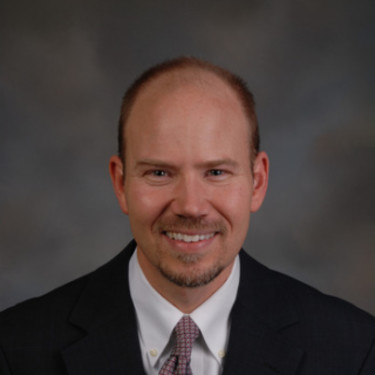They say that there are some things you cannot unsee, but I think it’s more common that there are some things you cannot unhear. The words from my wife echo in my head: “We’re only as important as your least important patient.” Whether she’s referring to me coming home late, going in on call, or taking a phone call during dinner, I understand her point. The problem is that I don’t think there is a least important patient. It would sort of be like having a least important child.
Physicians often extoll the disadvantages of a medical marriage. I’ve heard the unabated whining frequently: no time to talk about things other than medicine, competing call schedules, both finishing clinic notes late at night, delaying the start of a family, etc. It seems that very little attention is given to the mixed medical/non-medical marriage. I’m sure my friends in a medical marriage think it’s all rainbows and unicorns: dinner waiting for you when you come home from clinic, kids being cared for by a mother or father rather than a nanny, deep philosophical discussions of topics not related to medicine, etc. However, as someone in a mixed relationship, I can assure you it is not quite like that.
My wife did not grow up in a medical family. We married while I was in medical school, right before I began my clinical rotations. She was finishing her graduate degree in art history — a field that could probably not get any further from medicine if you tried. To say my job demands were a rude awakening for her is putting it mildly. The concept that I had absolutely no control over my schedule was foreign to her. I considered a specialty that would have required general surgery training, but I truly did not think that my marriage would survive the training. I chose ophthalmology with an internship in internal medicine. I thought this was a humane pathway in a specialty I enjoyed that would challenge me intellectually and surgically, and allow me to have time to spend with my wife and future children. And, there was the added benefit of spending that time with an art historian, as my wife would talk with me about things not related to medicine.
It is interesting, this commitment we have to our patients and our family. To me, they are two separate entities and are not comparable or related. However, the sacrifice we make to take care of patients understandably makes it look like we are making a conscious choice between the two. My family gets my love, and my patients get my knowledge and skills. The problem is that both of these demand my attention and time. I used to say that I knew when I was devoting enough time to work and family because they would both be equally unhappy with me … they never seemed to be equally happy with me, and if one was happy, I was probably not paying the other enough attention. I can see how taking attention and time from my family and giving it to my patients seems like a raw deal to my family. I guess it could be seen as sacrificing my family for my patients. But do we ever sacrifice our patients for our families? Maybe we do, unconsciously, when we rush through clinical duties to get home or to a family event. My wife often says that it would be different if she didn’t like me. She tells me of friends of hers who don’t necessarily “like” their spouses and appreciate their absence. I guess I should take that as a compliment.
In a medical marriage, I think there is a tacit understanding that the commitment we have to our patients is “what we do” in medicine. In a mixed medical/non-medical marriage, there may be that understanding, but I think that probably the non-medical spouse accepts that understanding begrudgingly. To try to decide between your family and your patients is like comparing apples to oranges. They are not related, but they both require a part of us. One is not more important than the other, even though it may seem that way.
So, how do we ensure our mixed marriages survive? I’m still learning (after 30 years!), but I’ve found the following to be helpful: Similar to any relationship in the workplace or at home, people want to be appreciated, treated kindly, respected, and paid appropriately. I think we often fail in making sure our family knows that they are appreciated. Consciously reminding ourselves to show our appreciation for our family is of utmost importance. I’ve witnessed some of my colleagues treat their employees and patients more kindly than their own family. I think it is related to taking family members for granted and not remembering that they are the most important ones to treat kindly. Your family are the ones you love — you may feel love toward your patients and co-workers, but you don’t love them like you do your family.
In addition, we are taught in medicine that our occupation is more important than any other; however, the world does not run without everyone working together. Respecting the occupation of our spouse and recognizing that it is their life’s work is crucial. Everyone deserves respect for the work they do; it is important to make time to attend their awards or graduation ceremonies, for example, as well as to be a listening ear when they want to unload about their workday. Respect goes both ways, even if it doesn’t jive with what we’re taught.
And finally, we do not “pay” our family with money, but the currency is our undivided attention and being present when we are home. I have to remind myself of these quite often to continue to enjoy the mixed marriage that I chose.
Is your spouse also in medicine? Share the joys and challenges in the comments below.
Dr. Richard Allen is an oculoplastic surgeon in Houston, TX. He will be practicing at St. Erik Eye Hospital in Stockholm, Sweden from September to December of 2024 as a visiting Professor. He is an avid cyclist and enjoys spending time with his wife outdoors. Dr. Allen is a 2024–2025 Doximity Op-Med Fellow.
Illustration by April Brust







